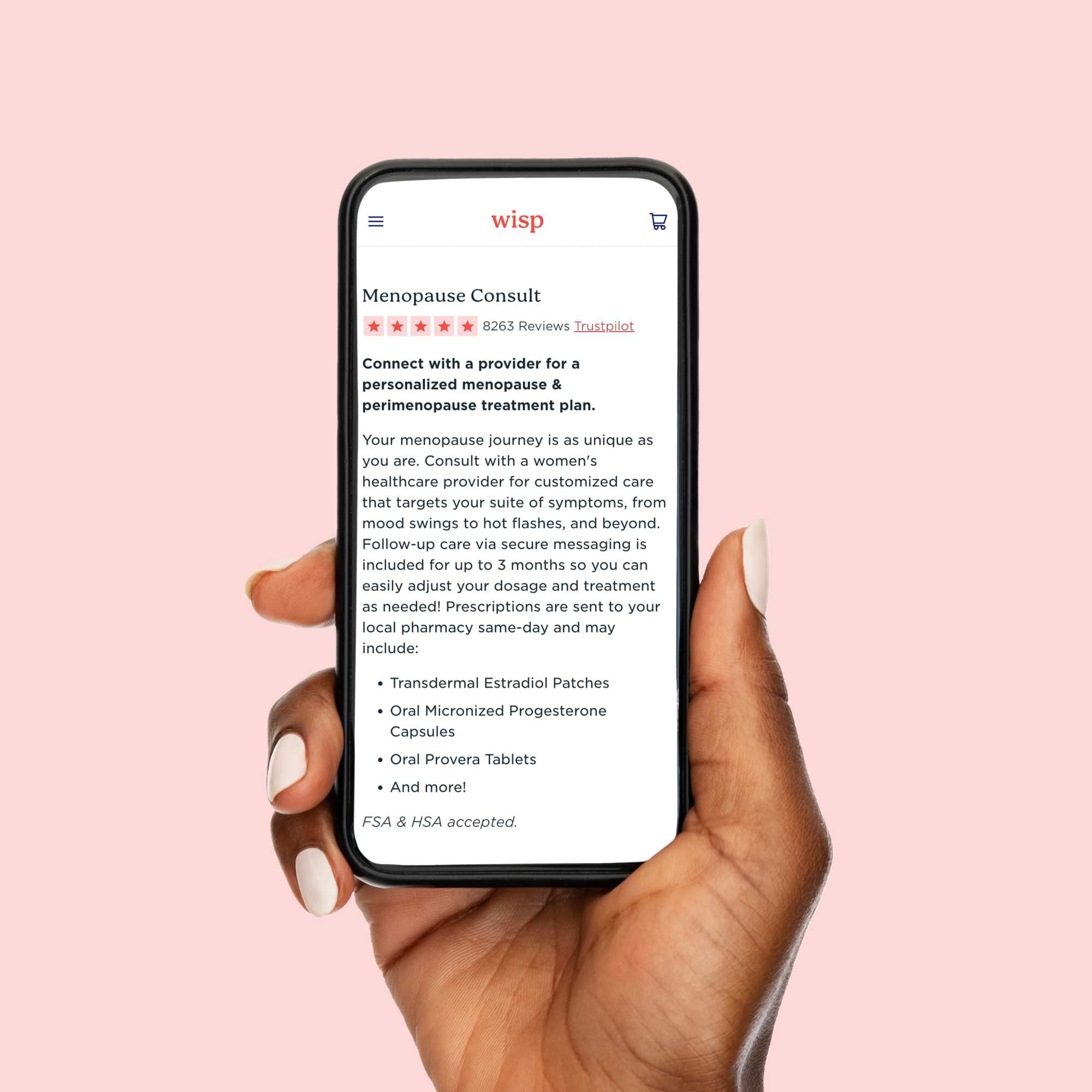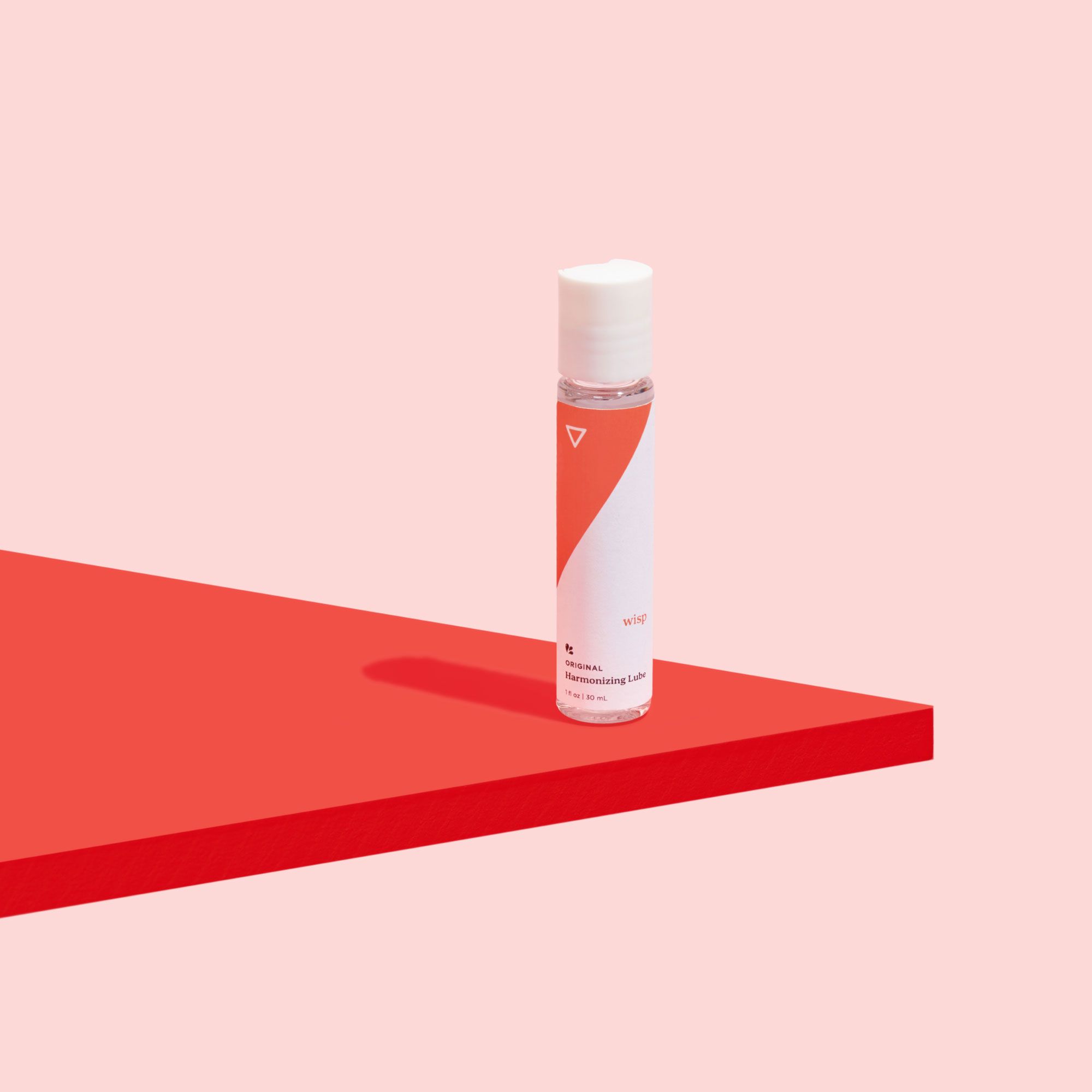
Do Women Lose Their
Sex Drive After Menopause?
Published on October 18, 2024
Updated on September 18, 2025
Written by Kathleen Morrison
Medically Reviewed by Andrea Sleeth WHNP-BC, MSCP
Key Takeaways
- Menopause doesn’t automatically mean loss of sex drive. Hormonal changes may affect desire, but intimacy and pleasure can still thrive with the right support.
- Physical shifts like vaginal dryness and reduced blood flow are common but manageable through lubricants or prescription medical treatments (hormonal and nonhormonal).
- Emotional health and relationships play a big role. Stress, body image, and communication with a partner strongly influence libido.
- Lifestyle choices matter. Regular exercise, a balanced diet, and self-care can improve circulation, energy, mood, and overall sexual wellness.
- Treatment options exist. From HRT and localized therapies to lubricants, supplements, and open partner communication, there are many ways to help support sexual health after menopause
Short answer: nope, not necessarily. Menopause might shake things up, but it doesn’t mean your sex life has to fade. Lots of people notice changes in libido during this time, and that’s totally normal. Hormones are shifting, your body’s doing its thing, and sometimes that can affect desire. But low libido isn’t the whole story. Pleasure and intimacy can absolutely thrive after menopause, it just might look a little different.
Here’s the thing: menopause isn’t the end of your sex life, it’s just a new chapter. Hormonal changes can cause stuff like vaginal dryness or discomfort, which can make intimacy less fun. But there are practical ways to tackle that—from lubricants to prescription options—all designed to help you feel comfortable and excited again.
How and why your desire might shift
Menopause brings big hormonal changes that can shake up your sex drive. Drops in estrogen and testosterone (key players in sexual desire and function) can make things feel different in the bedroom. These shifts may not happen all at once; they can start gradually during perimenopause and settle at lower levels after menopause. Understanding these changes helps you navigate them without stress or shame.
Vaginal dryness and comfort
Vaginal dryness is super common after menopause, affecting up to 70% of women. Less natural vaginal lubrication can make all forms of sexual intercourse uncomfortable or even painful, and that can understandably lead to avoiding intimacy. But a little help goes a long way. There are plenty of products out there that can enhance your natural lubrication and make sex more enjoyable again.
Blood flow and arousal
Lower blood flow to the genitals can change sexual arousal, making the clitoris less sensitive or vaginal walls less responsive. It’s frustrating when your body doesn’t respond like it used to—but there are ways to support it. Regular movement and supplementing with amino acids like L-arginine can help promote healthy circulation and give your libido a natural little boost. There are even libido supplement options out there if you’re looking for something more targeted.
Emotional connection and relationships
Sex drive isn’t just about hormones; it’s also about how you feel emotionally and in your relationships. Stress, body image, and changes in intimacy dynamics can all influence your desire. Open communication with your partner, carving out some quality time together, and exploring new ways to connect can reignite intimacy and make sex feel enjoyable again.
Your mental health and libido
Your mood and your sex drive are basically best friends—they influence each other more than you might think, especially during menopause. Stress, body changes, and sleepless nights from hot flashes can make desire feel… a little MIA. Anxiety, low mood, or just juggling all the stuff life throws at you can make intimacy feel like extra work. And then, when desire dips, it can mess with your mood even more. Yeah, it’s a loop.
Here’s how to give your libido a little boost while taking care of your mental health:
- Talk it out: Open conversations with your partner about what’s feeling good (and what isn’t) can make intimacy less stressful and more fun.
- Carve out self-care moments: Even 10–15 minutes a day for yourself—reading, stretching, or a relaxing bath—can lift your mood and reset your energy.
- Lean on support: Mental health professionals or Wisp consults can guide you through libido shifts with advice tailored to your needs.
- Focus on connection: Small gestures like cuddling, holding hands, or playful touch can spark desire even when libido feels low.
You don’t have to just “deal with it.” With a few adjustments and the right support, you can feel more in tune with your body and your sex drive again.
Treatment options for low sex drive
Sometimes, self-care and supplements aren’t enough to get your libido back on track, and that’s totally okay. Medical treatments can give a helpful boost, whether you need a little support for vaginal comfort or a more systemic approach for hormone balance. The right option really depends on your symptoms, your health history, and what feels right for you.
Hormone therapy
Hormone replacement therapy can be a game-changer for postmenopausal women struggling with a low sex drive.
- Systemic HRT: Available as pills, patches, or gels, this approach replaces estrogen throughout your body, helping with multiple menopause symptoms at once.
- Localized HRT: Certain products can target vaginal tissues directly, easing dryness and making sex more comfortable without affecting your hormones elsewhere.
These options are especially helpful if dryness or discomfort during intimacy is a major factor in low desire.
Nonhormonal options
Not ready for hormones? No worries. There are plenty of ways to support your sexual wellness without them:
- Lubricants and moisturizers: Instant relief for dryness and friction, keeping intimacy comfortable and enjoyable. Non-hormonal prescription vaginal creams are a go-to choice for many women.
- Other treatments: Certain medications and therapies improve blood flow or address specific sexual function issues, giving you more ways to feel like yourself again.
With the right combination of approaches (whether hormonal, nonhormonal, or both), you can take charge of your sexual health and rediscover pleasure during menopause.
What about lifestyle stuff?
Your everyday habits can make a surprisingly big difference in sexual desire during and after menopause. Getting moving isn’t just good for your heart and mood—it can also help increase blood flow where it counts (if you know what we mean). Exercise can help lift your energy levels, improve your mood, and even support hormone balance.
What you eat matters too! Incorporating foods rich in omega-3s and antioxidants can help your body feel more balanced and energized.
And don’t forget about urinary tract health. UTIs become more common after menopause and can really throw off comfort and desire. Taking a daily urinary health supplement is an easy, convenient way to help support your body and help intimacy feel easier.
Talk openly with your partners
Honest, relaxed conversations with your partner are super important here. Chat (in or outside the bedroom) with anyone you're sexually active with when you’re both calm, and let them know what feels good (and what doesn’t) now that your body might be doing its own thing.
Sharing how physical changes affect intimacy can be a huge relief for both of you. It helps your partner understand that shifts in desire or sexual response aren’t always about attraction; they’re just part of the journey. Creating a judgment-free space to talk openly strengthens your connection and can help make it easier to explore new ways of enjoying intimacy together.
Keeping your spark alive
Do women lose their sex drive after menopause? Some of them, sometimes. Does this mean menopause spells the end of your sex life? Absolutely not.
While hormonal shifts can change sexual desire, complete loss of interest in sex isn’t inevitable. In fact, intimacy after menopause can feel just as exciting—sometimes even more so. Regular sexual activity supports vaginal health, boosts confidence, strengthens relationships, and yes, it can still be a lot of fun.
Sexual wellness after menopause is all about understanding your body and exploring what works for you. Physical changes? Emotional shifts? Both matter, and both can be addressed. Wisp is here with everything from support to helpful products to get you through it, so you can approach your sex life confidently, comfortably, and exactly on your terms.
Ready to feel more in tune with your body and desire? Consult with Wisp’s certified menopause provider today for customized advice.
This blog post is for informational and educational purposes only and should not be taken as professional advice. Always consult with a qualified professional before making any decisions based on the information provided here.

Menopause Consult Online
$99
Customized care for menopause & perimenopause symptoms including estrogen & progesterone hormone replacement.

OMG! Cream for Female Arousal
Starting at $11/ month
A topical cream that helps increase blood flow to the clitoris using Sildenafil (generic Viagra).

Original Harmonizing Lube
Starting at $10
Silicone-based to reduce friction and make sex easier, more pleasurable, and more fun.

Non-Hormonal Vaginal Moisturizer
Starting at $60
Hormone-free moisture for all life stages, including breastfeeding, postpartum, and menopause.


